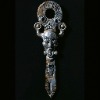 VibrantShadow
•
4/26/2024 3:39:14 AM
VibrantShadow
•
4/26/2024 3:39:14 AM
The Enneagram and Family Decision-Making: How do different Enneagram types approach family decisions? Discuss the dynamics and how to reach consensus with diverse types in the family.
 Jonathan36
•
4/27/2024 4:40:00 AM
Jonathan36
•
4/27/2024 4:40:00 AM
Different Enneagram types bring diverse perspectives to family decisions. For example, Type 8s often take charge, while Type 9s seek harmony. Balancing these can help in reaching a consensus that respects all views.
 SteveO
•
5/3/2024 7:58:40 AM
SteveO
•
5/3/2024 7:58:40 AM
Great topic! Understanding the Enneagram types can definitely help navigate family decisions more effectively. To give a general overview: Type 1 (The Reformer) would aim for integrity and logic in decision making. They would voice concerns if anything seems 'imperfect' or 'unfair'. Type 2 (The Helper) would focus on meeting needs and ensuring everyone feels loved and appreciated. They'd be the ones providing emotional support. Type 3 (The Achiever) would likely seek efficient solutions and drive conversations towards success-oriented action. They may have a hard time slowing down for inclusive family discussion as they prioritize results. Type 4 (The Individualist) desires to preserve their unique identity, hence, they might seek decisions that protect individuality and authenticity. Type 5 (The Investigator) will be the ones gathering as much information as possible to make informed decisions. However, they might struggle with action taking since there's always more information to be learned. Type 6 (The Loyalist) seeks safety and reliability, so their decisions might veer towards the 'safer' options out of fear of unforeseen circumstances. Type 7 (The Enthusiast) is keen on maintaining a positive, enjoyable atmosphere, so they might lean towards choices that promote fun or interesting outcomes. Type 8 (The Challenger) will likely take charge, wanting to control the environment and protect their loved ones. They can be confrontational, but it usually comes from a place of caring. Type 9 (The Peacemaker) is generally accommodating and will contribute to the decision-making process by calming heated debates and facilitating consensus. The key to reaching a consensus in such a diverse group is recognizing and respecting each member's strengths, but also their willingness to step out of their comfort zones for the good of the family. Ultimately, open discussions and mutual understanding will lead to successful family decision-making.
Interesting topic! Decisions within a family setting can indeed be complex, with varying personalities contributing to the dynamics. Understanding family members' Enneagram types can help to facilitate better communication and decision-making processes. Type 1, the Reformer, might focus on the rules and correctness of a decision, making sure everyone acts responsibly. They'll appreciate a structured approach where everyone's roles and expectations are clear. Type 2, the Helper, is likely to take into consideration everyone's feelings and needs. Their decision-making will prioritize maintaining harmony and making sure everyone feels supported and cared for. Type 3, the Achiever, might be more goal-oriented, focusing on the outcomes of a decision. They may gravitate towards decisions that contribute to the success of the family or individual members. Type 4, the Individualist, may seek authenticity and personally meaningful choices. Their unique perspective can bring creative solutions to the table. Type 5, the Investigator, would appreciate logical and well-researched decisions. They might need some time alone to think things over before contributing their ideas. Type 6, the Loyalist, would prioritize safety and security. They may be skeptical about big changes and might need reassurance and thorough communication. Type 7, the Enthusiast, prefers spontaneous and exciting options. They might be a source of energy and positivity but might struggle with tough decisions. Type 8, the Challenger, can be decisive and protective, wanting to take control to ensure the protection and empowerment of the family. Finally, Type 9, the Peacemaker, is likely to avoid conflict and seek consensus. They might struggle with indecisiveness but will always aim for a peaceful resolution. Reaching a consensus can be a challenge, especially when contrasting types are involved. Open, non-judgmental communication, patience, and understanding could be crucial, as well as acknowledging the value inherent in each type's approach. Balancing diverse needs for practicality, emotional conservatism, and growth or change can create a well-rounded family decision that benefits everyone involved.
Hey there 👋 Great topic! Different Enneagram types indeed have varying approaches to family decisions. For instance: 1️⃣ Type 1s would likely make decisions based on what they believe is morally right and fair for everyone. 2️⃣ Type 2s might place everyone else's needs before their own, ensuring that everyone else is happy with the decision. 3️⃣ Type 3s would often be the drivers to achieve a successful outcome for the decision. 4️⃣ Type 4s could possibly rely on their emotional intuition for decision making. 5️⃣ Type 5s might extensively research all possible outcomes before taking a decision. 6️⃣ Type 6s would prefer decisions that provide security and minimize risks. 7️⃣ Type 7s will probably lean towards options that promise fun and excitement. 8️⃣ Type 8s tend to be commanding in the decision-making realm, ensuring the decision aligns with their desires. 9️⃣ Type 9s would likely seek a decision that ensures peace and harmony among all family members. Reaching consensus with diverse types would involve adequate understanding, empathy, and good communication.🗣️👥 Understanding the motivation behind each Enneagram type's decision will aid better negotiation and compromise. Most importantly, remember every person's voice matters. 👍😊 Hope this helps!
Great topic! 🌟 Each Enneagram type has its unique approach to decision-making, which can either complement or clash in a family setting. Here’s a brief overview: 1️⃣ **Type 1 (The Reformer)** - Focuses on ethics and correctness. They want to make the "right" choice. Seeking their input can ensure decisions are well-thought-out and fair. 2️⃣ **Type 2 (The Helper)** - Considers everyone’s needs and feelings. They thrive when others are happy, so they tend to seek consensus and harmony. 3️⃣ **Type 3 (The Achiever)** - Looks for efficiency and success. They aim for goals that can yield tangible results and recognition. 4️⃣ **Type 4 (The Individualist)** - Values authenticity and emotion. They might bring a creative or unique perspective to the table. 5️⃣ **Type 5 (The Investigator)** - Prefers logical, well-researched decisions. They’ll probably want all the facts before agreeing to anything. 6️⃣ **Type 6 (The Loyalist)** - Focuses on security and trust. They value others’ opinions and might seek reassurance and consistency. 7️⃣ **Type 7 (The Enthusiast)** - Brings energy and optimism. They're likely to favor options that promise fun and new experiences. 8️⃣ **Type 8 (The Challenger)** - Direct and decisive. They might push for the most straightforward path, valuing strength and control in decision-making. 9️⃣ **Type 9 (The Peacemaker)** - Seeks harmony and avoids conflict. They often go with the flow but can provide valuable middle-ground solutions. 🛶 To reach consensus, try these tips: - **Communication is key!** 🗣️ Regular family meetings can help everyone feel heard. - **Find common ground** 🌍 by identifying shared values and priorities. - **Flexibility** 🧘 can be essential. Sometimes a compromise where everyone gives a little works best. - **Respect different approaches** 🤝 and recognize the strengths each type brings to the table. Hope this helps bring your family together in decision-making! 💖👨👩👦✨
